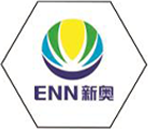
Dec . 04, 2024 16:02
Back to list
Natural Gas Safety Valves for Enhanced Protection and Reliable Operation in Industrial Applications
Natural Gas Safety Valves Ensuring Safety and Efficiency
Natural gas has become an essential energy source in our daily lives, powering homes, businesses, and industries across the globe. However, the use of natural gas also comes with inherent risks, primarily the potential for leaks and explosions. As a result, the importance of safety mechanisms cannot be overstated. One critical component in ensuring safe natural gas usage is the safety valve, specifically designed to prevent overpressure and protect against hazardous conditions.
A natural gas safety valve is a mechanical device that automatically releases pressure when it exceeds a certain limit. This is vital because excessive pressure can lead to catastrophic failures, including explosions or equipment damage. The safety valve is engineered to respond promptly and efficiently, maintaining optimal pressure levels within a system. Typically constructed from robust materials such as brass or stainless steel, these valves are designed to withstand harsh environmental conditions and the corrosive nature of natural gas.
The operation of a natural gas safety valve hinges on its ability to maintain a balance between pressure and safety. When the pressure in a gas pipeline or storage tank exceeds the predetermined threshold, the safety valve opens to vent excess gas, thereby preventing potential over-pressurization. Once the pressure drops to a safe level, the valve automatically closes, ensuring that the system operates efficiently without any manual intervention. This automatic functionality is crucial, especially in scenarios where human oversight may be limited or delayed.
natural gas safety valve

In addition to mechanical safety valves, there are also electronic safety valves equipped with advanced sensors and control systems. These modern valves provide real-time monitoring and can alert operators to potential issues before they escalate. With the integration of IoT (Internet of Things) technology, these valves can communicate with central control systems, allowing for remote management and rapid response in case of an emergency. This technological advancement not only enhances safety but also improves operational efficiency, as it minimizes downtime and ensures a continuous supply of natural gas.
Regular maintenance and testing of natural gas safety valves are essential to ensure their proper function. Operators should establish a routine inspection schedule to check for wear and tear, corrosion, or any signs of malfunction. It is also crucial to replace any defective components promptly to maintain the integrity of the safety system. By adhering to stringent maintenance practices, organizations can significantly reduce risks associated with natural gas operations.
Moreover, regulatory compliance plays a vital role in the deployment of natural gas safety valves. Various government agencies and industry standards dictate the specifications and testing requirements for these valves. Adhering to these regulations not only promotes safety but also fosters public trust in natural gas utilities. Companies that prioritize compliance can avoid costly penalties and enhance their reputations as reliable service providers.
In conclusion, natural gas safety valves are indispensable components of natural gas systems, playing a crucial role in maintaining safety and efficiency. Their ability to automatically regulate pressure and respond to hazardous conditions helps prevent catastrophic incidents. As the natural gas industry continues to evolve, the integration of innovative technologies and strict adherence to safety regulations will ensure that these systems operate safely and effectively. In a world increasingly reliant on natural gas, the importance of investing in robust safety measures cannot be overstated.
Latest news
-
Safety Valve Spring-Loaded Design Overpressure ProtectionNewsJul.25,2025
-
Precision Voltage Regulator AC5 Accuracy Grade PerformanceNewsJul.25,2025
-
Natural Gas Pressure Regulating Skid Industrial Pipeline ApplicationsNewsJul.25,2025
-
Natural Gas Filter Stainless Steel Mesh Element DesignNewsJul.25,2025
-
Gas Pressure Regulator Valve Direct-Acting Spring-Loaded DesignNewsJul.25,2025
-
Decompression Equipment Multi-Stage Heat Exchange System DesignNewsJul.25,2025

